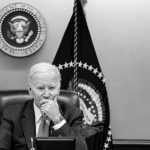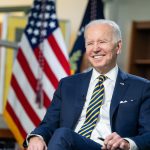The task of managing censorship by Big Tech companies has become increasingly challenging, given the rising pressure from both the public and legal authorities. The number of personnel employed by these corporations’ censorship teams has decreased, according to The New York Times. For instance, YouTube has trimmed its “hate speech and harassment” policy expert team by two members, and also eliminated two of its five misinformation experts, along with downsizing its policy enforcement and response teams. Similarly, Twitter has also undergone a significant reduction in staff, with CEO Elon Musk firing half of the company’s 8,000 employees.
As a general rule, we don’t want to get in the way of open debate on our platforms, esp in context of democratic elections. People should be able to hear what politicians are saying – good, bad & ugly – to make informed choices at the ballot box. 1/4
— Nick Clegg (@nickclegg) January 25, 2023
With their significant influence over content moderation, tech giants are being urged to take responsibility for their actions by the public. Texas Senator Ted Cruz, a Republican, has announced a probe into the recommendation algorithms of Meta, Google, Twitter, and TikTok. In a letter to these companies, he expressed concerns about how the visibility of high-profile conservative accounts may be limited by these algorithms.
Despite facing legal pressure and a decline in popularity, a few top executives of Big Tech firms are still determined to enforce their policies on misinformation. At a recent House Oversight Committee hearing, former Twitter executives were questioned about their involvement in suppressing the Hunter Biden laptop story. Yoel Roth, who previously led Twitter’s Office of Trust and Safety, argued that their censorship policies actually led to greater freedom of expression.
According to a statement, Nick Clegg, the President of Global Affairs at Meta, expressed a view similar to that of Yoel Roth. Clegg stated that it is vital to differentiate between harmful content that needs to be eliminated and content that, while it may be offensive or inaccurate, is part of the lively debate in a democratic society. He thinks that it is crucial for the public to have access to what their political leaders are saying, so that they can make informed decisions when casting their votes.
The debate surrounding Big Tech censorship has been ongoing for some time now, with no clear resolution in sight. As more and more tech companies face legal pressure and layoffs across the board, it appears that their censorship teams are losing steam. Despite this, some executives remain set on enforcing misinformation policies in order to protect the public from harmful content. It remains to be seen whether these policies will be successful in achieving their intended purpose or if they will be met with further criticism.
The preceding article is a summary of an article that originally appeared on The Daily Caller




